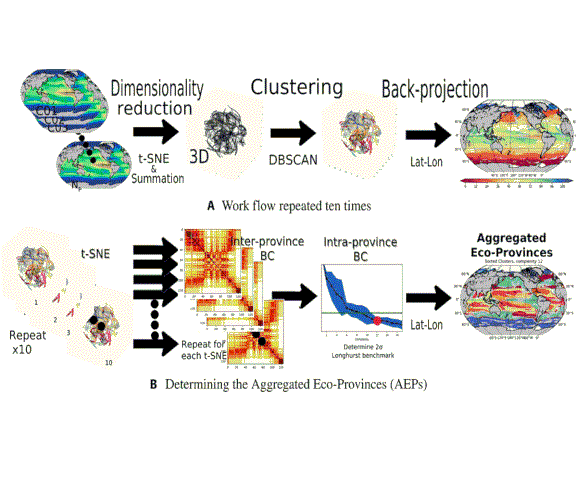
Actionable ocean insight for Earth's climate.
I am a physical oceanographer using computer science/dynamical systems tools to explore ocean dynamics on decadal to climate scales. Passionate about bringing together different branches of oceanography, my goal is to discover the underlying principles that govern ocean dynamics from small to global scales. The focus of my group is on physics, connecting observational and model efforts, but we also work on ocean acidification and ecology in collaborative efforts. We focus on the global ocean, using scalable methods, with a special interest in the Southern Ocean and the North Atlantic.
I lead the Computational Climate and Ocean Group at UC Davis. One current focus of my group, among others listed under Research, is on inferring sub-surface 3D ocean dynamics using surface fields, with the aim of improving our understanding of climate as well as our skill in long range weather forecasts (weeks to months). This work leverages trustworthy (interpretable and explainable) machine learning, and is designed for use with CMIP6 or similar model data that we've used to investigate the Atlantic and Southern Ocean's role in climate and also the global climate mode El Nino Southern Oscillation. This work continues the development of the SAGE (Systematic AGgregated Eco-province) and NEMI (Native Emergent Manifold Interrogation) methods, combining statistical tools, interpretable and explainable machine learning and graphs, designed to work with non-linear data ubiquitous in oceanography and beyond.















